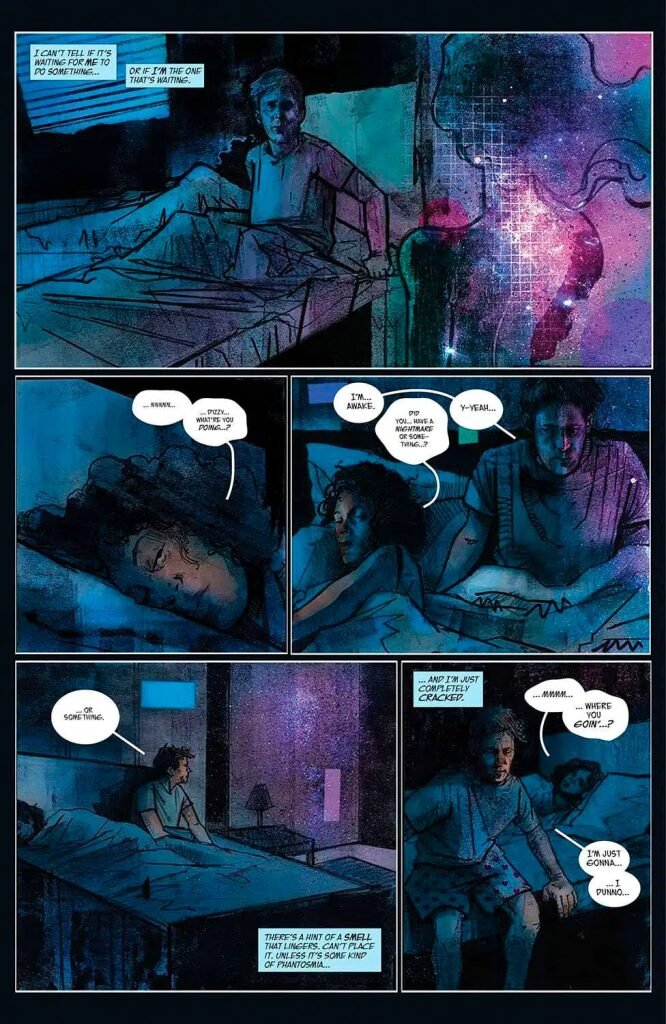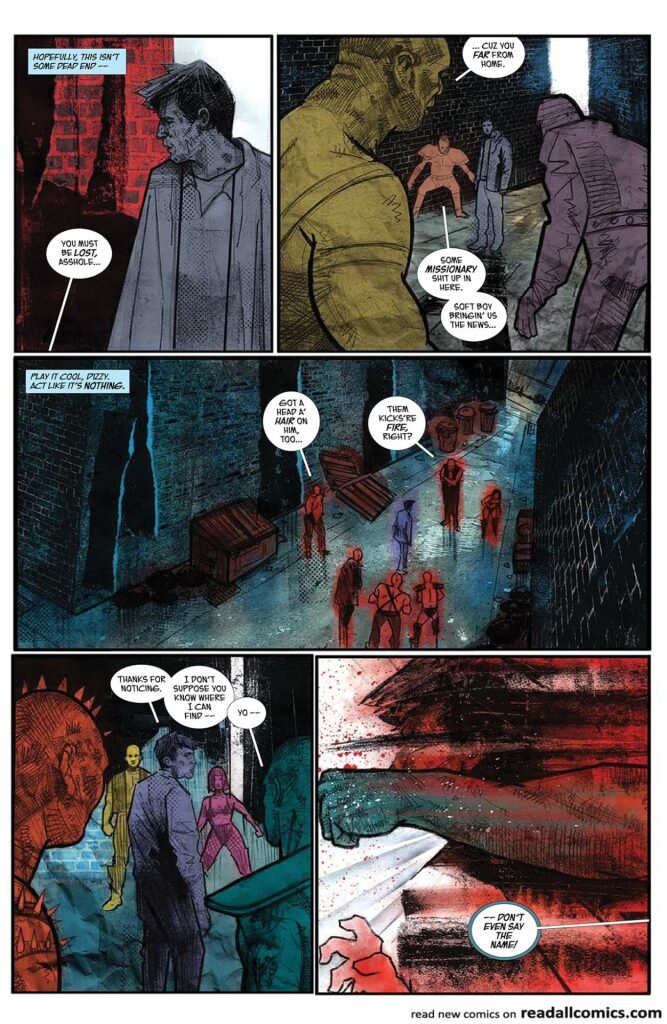Writer: Joe Casey
Artist: Ryan Quackenbush
Image Comics, 2023

IMAGINE A BOX of a room with an artist standing in the center midst buckets of paint staring at the white walls. The rectangular shape makes you stand close as the artist slabs paint, shade after shade, scoping into the distance to the far ends, where the visuals break free and splatter the space with fire, light, and gravity swooshing through the corridor between the poles like a cosmic wind. You cough, catch yourself, feel slightly unwell, vertigo, and stumble out into the real world. Such as it is.
This is the place where writer Joe Casey conceived and birthed JUNIOR BAKER: THE RIGHTEOUS FAKER, a new five-issue mini-series that caused me to catch my breath and feel the vertigo when I entered the mural-painted rooms of artist Ryan Quackenbush and gaped at the spectacle. Melt him down and make him stop before he does anything less wondrous than this.

The character that shambles into view midst the coagulated colors is a slacker guy, a decade or so on, who calls himself an investigative journalist, writing for an online news feed. He blabbers constantly, his deep thoughts running over the surface like bubbling foam, tossed about by the colorscapes of his mind. He worries not so much about actual issues and current projects a writer might have at the top of his thoughts, more on his own existence and clumsy aspirations, and the ways of the world. He clearly has too much time on his hands between deadlines.
Straining to catch the current of so many glib and globular phrases, like “too many questions, not enough answers” and “chasing a story” and “no turning back now” and “you were born to it” peppered with timeless tidbits of wisdom and inspiring words, even little myths with a kind of sun-king amanuensis on the side, I gradually realized the surface was all there was to it. The guy’s name fits. He is a junior baker kneading half-baked ideas into a story that is neither bread nor cake. He believes he can fake it until he makes it, and by righteous determination convince himself and his listeners his mission is pure. Have faith in yourself. Faith in me.
He goes back to work to avoid the desolation in his own life. It’s painful to be hard on the guy, because he might be me, or you, during some slovenly interval. His editor mid-way summed up my feelings, telling him this beat-up attitude, “It’s gonna get old fast.”

Like other budding reporters, Baker decides he needs to go beyond the frontier to get his story, where others have not yet trod, foreign parts, the war zone. He armors up and heads out. The rest you can see for yourself.
The Junior Baker drama started me thinking, what distinguishes his shambling work style from a professional, which he claims to be. Determination to work as an individual is not the same thing as a determination to work with others as a professional on a team, where it matters what language you use, demeanor, clothes, even the tiny lines in your face that signal whether you stare or scrutinize. All is read. How you cultivate your experience, skills, and standards in your spare time, and your spare thoughts, appears in your performance and reliability observed by others. A professional life is based on relationships of trust, and many liminal and subliminal cues display one’s character. Faking it rarely works very long.
A Puritan Christian work ethic is commonly associated with business success as if something said in a book was the key: work and be saved. Godless reporter Junior Baker raises self-analysis to a high pitch; he is aware he has to work to be saved. What he lacks is a sense found in all salvation religions, east and west, that god is watching, all is counted, all is told, what is innermost and private is also outermost and public. Calling it conscience, morals, scruples, or professional ethics are mere facets slanting off the eye of god. Always watching. Watching you.

